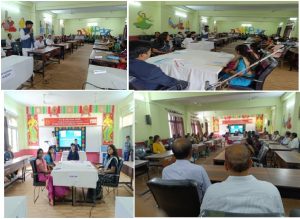Youth Parliament
 Objectives
Objectives
• Civic Education: To provide students with a practical understanding of how democratic institutions and processes work.
• Skill Development: To develop key skills such as debate, negotiation, public speaking, and critical thinking.
• Engagement: To foster a sense of civic responsibility and encourage active participation in community and national issues.
• Leadership: To identify and nurture leadership qualities in students.
Structure
• Election Process:
o Students run for various positions (e.g., Prime Minister, Speaker, Members of Parliament).
o Campaigning and elections are conducted within the school, mirroring real-world political campaigns.
• Parliamentary Sessions:
o Regular sessions are held where elected members debate, discuss, and vote on various issues.
o A Speaker presides over the sessions, ensuring rules are followed and facilitating discussions.
• Committees:
o Various committees (e.g., Environment, Education, Health) may be formed to focus on specific areas.
o Committees conduct detailed discussions and report back to the full parliament.
Activities
• Debates and Discussions:
o Students debate current issues, proposed school policies, or community projects.
o Topics may range from environmental policies to school improvement plans.
• Legislative Process:
o Students draft, propose, and vote on mock legislation or resolutions.
o This process helps them understand how laws are made and the complexities involved.
• Workshops and Training:
o Workshops on public speaking, parliamentary procedures, and leadership skills.
o Training sessions with guest speakers such as local politicians, activists, or experts.
• Community Engagement:
o Initiatives that involve the local community, such as surveys, volunteer projects, and awareness campaigns.
o Partnerships with local government bodies or NGOs to work on real-world issues.
Benefits
• Enhanced Understanding of Democracy: Students gain a practical understanding of democratic processes and the importance of civic participation.
• Skill Development: Opportunities to develop essential skills that are valuable in many areas of life and future careers.
• Leadership and Responsibility: Encourages students to take on leadership roles and understand the responsibilities that come with them.
• Active Citizenship: Fosters a sense of responsibility and engagement with societal issues, encouraging students to become active, informed citizens.
Implementation Tips
• Support from School Administration: Ensure that the school administration is supportive and provides the necessary resources and guidance.
• Inclusive Participation: Encourage participation from a diverse group of students to ensure varied perspectives and inclusivity.
• Realistic Simulation: While maintaining educational goals, keep the simulation as realistic as possible to provide a genuine experience.
• Feedback Mechanism: Establish a feedback system for students to reflect on their experiences and suggest improvements.
Conclusion
A youth parliament in school can be a transformative experience for students, providing them with a deeper understanding of democracy and governance while developing essential life skills. By engaging in this process, students not only learn about political systems but also become more informed and active participants in their communities.
A Youth Parliament was held at PM SHRI Kendriya Vidyalaya Garden Reach on 31/08/2024, in the activity room. Students actively participated in simulating parliamentary processes, engaging in debates, and formulating solutions to important issues. This event showcased their keen understanding of governance and social responsibility, fostering a spirit of leadership and civic engagement. The initiative highlighted the school’s commitment to empowering the next generation of leaders.


